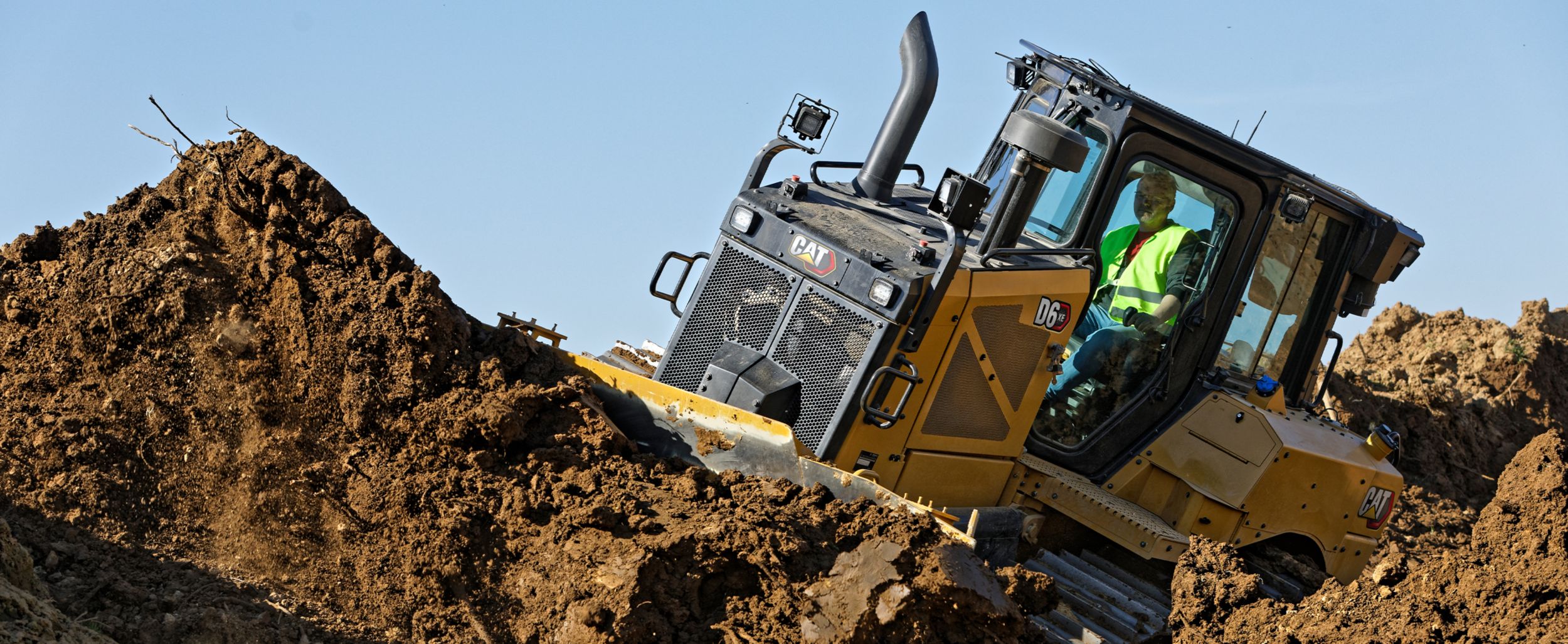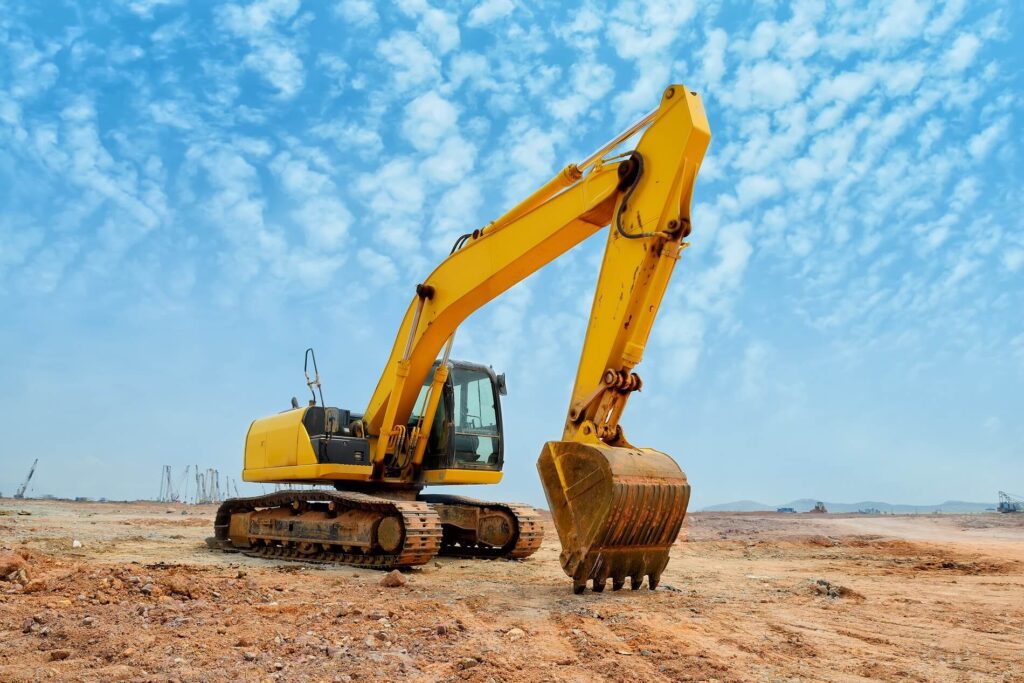Discovering the Financial Perks of Leasing Building And Construction Devices Contrasted to Possessing It Long-Term
The choice between owning and renting out building and construction equipment is critical for economic administration in the sector. Renting offers instant price financial savings and functional adaptability, allowing companies to assign resources more efficiently. In contrast, ownership includes considerable lasting financial commitments, including upkeep and devaluation. As professionals weigh these alternatives, the effect on cash money circulation, task timelines, and modern technology access comes to be significantly considerable. Understanding these subtleties is vital, specifically when taking into consideration how they align with specific job demands and financial approaches. What variables should be prioritized to guarantee ideal decision-making in this complicated landscape?

Cost Contrast: Leasing Vs. Having
When examining the monetary ramifications of renting out versus having building equipment, a complete cost contrast is essential for making informed decisions. The option between renting out and having can substantially affect a business's lower line, and understanding the connected expenses is vital.
Renting out building devices normally includes reduced upfront prices, allowing companies to allocate funding to various other functional needs. Rental prices can collect over time, potentially surpassing the expense of possession if tools is needed for a prolonged period.
On the other hand, owning building equipment needs a substantial initial financial investment, in addition to ongoing costs such as financing, insurance coverage, and depreciation. While ownership can cause long-term cost savings, it also binds resources and might not offer the very same level of adaptability as renting. Additionally, having tools requires a commitment to its usage, which may not constantly align with job needs.
Eventually, the decision to lease or have needs to be based on an extensive analysis of specific task demands, financial capacity, and lasting strategic objectives.

Upkeep Expenses and Responsibilities
The option in between renting and having building and construction tools not only entails monetary considerations yet likewise includes continuous upkeep expenses and obligations. Possessing equipment calls for a substantial dedication to its maintenance, that includes routine evaluations, repairs, and potential upgrades. These duties can quickly collect, bring about unanticipated prices that can strain a budget plan.
In comparison, when renting tools, upkeep is commonly the duty of the rental company. This arrangement enables service providers to prevent the economic concern linked with damage, along with the logistical difficulties of scheduling repair services. Rental arrangements usually include provisions for maintenance, meaning that specialists can focus on completing jobs as opposed to stressing over equipment problem.
Additionally, the varied series of tools offered for rental fee enables companies to pick the newest versions with advanced modern technology, which can enhance performance and performance - scissor lift rental in Tuscaloosa Al. By choosing services, services can avoid the long-term liability of equipment devaluation and the connected maintenance migraines. Eventually, evaluating upkeep expenses and obligations is important for making a notified decision about whether to lease or own building devices, significantly influencing overall task prices and functional efficiency

Devaluation Effect On Ownership

A considerable aspect to consider in the choice to have construction equipment is the effect of devaluation on overall ownership costs. Depreciation represents the decrease in worth of the devices gradually, influenced by variables such as use, deterioration, and innovations in technology. As devices ages, its market price diminishes, which can dramatically impact the proprietor's economic setting when it comes time to trade the devices or offer.
For building firms, this devaluation can convert to substantial losses if the equipment is not made use of to its fullest capacity or if it ends up being outdated. Owners should make up devaluation in their financial forecasts, which can result in greater total expenses compared to renting. Additionally, the tax obligation effects of depreciation can be intricate; while it might offer some tax advantages, these are often balanced out by the reality of decreased resale worth.
Eventually, the problem of depreciation highlights the value of comprehending the long-lasting financial dedication entailed in having construction devices. Companies must meticulously examine how typically they will use the equipment and the potential financial effect of depreciation to make an enlightened decision concerning ownership versus renting.
Monetary Flexibility of Renting Out
Leasing construction equipment uses considerable financial adaptability, enabling business to allocate sources extra efficiently. This flexibility is particularly critical in a market defined by fluctuating task needs and differing work. By opting to lease, services can avoid the considerable funding investment needed for purchasing tools, maintaining cash circulation for other operational needs.
In addition, leasing devices enables companies to customize their devices selections to details job needs without the lasting commitment connected with ownership. This indicates that services can conveniently scale their equipment stock up or down based on present and awaited job needs. Subsequently, this flexibility minimizes the danger of over-investment in machinery that might come to be underutilized or outdated over time.
Another d8 dozer rental near me financial advantage of renting is the capacity for tax benefits. Rental payments are commonly taken into consideration general expenses, enabling immediate tax obligation deductions, unlike depreciation on owned tools, which is topped numerous years. scissor lift rental in Tuscaloosa Al. This instant expense recognition can better improve a business's cash position
Long-Term Task Factors To Consider
When examining the long-term demands of a building and construction business, the decision in between possessing and leasing devices Read Full Report becomes extra intricate. Key factors to take into consideration include project duration, regularity of usage, and the nature of upcoming tasks. For tasks with extended timelines, acquiring tools may seem advantageous as a result of the potential for lower general expenses. Nonetheless, if the equipment will certainly not be utilized consistently across jobs, having might cause underutilization and unneeded expense on insurance policy, storage space, and upkeep.
Additionally, technological advancements pose a significant consideration. The building and construction industry is evolving swiftly, with brand-new equipment offering boosted effectiveness and safety functions. Renting permits companies to access the most up to date modern technology without dedicating to the high upfront costs related to acquiring. This versatility is specifically helpful for companies that handle varied projects needing various kinds of tools.
Additionally, monetary stability plays a critical role. Owning equipment often requires substantial capital expense and devaluation issues, while renting out permits even more predictable budgeting and money circulation. Inevitably, the choice between having and renting out must be aligned with the tactical goals of the building and construction service, taking into consideration both expected and existing job needs.
Final Thought
In conclusion, leasing building devices provides substantial economic benefits over lasting ownership. Inevitably, the decision to rent rather than own aligns with the vibrant nature of building jobs, permitting for adaptability and accessibility to the newest equipment without the monetary worries linked with ownership.
As devices ages, its market value reduces, which can substantially affect the proprietor's monetary position when it comes time to sell or trade the tools.
Renting out building and construction equipment provides considerable financial flexibility, permitting firms to next allot resources extra efficiently.In addition, renting out equipment makes it possible for business to customize their devices selections to particular project requirements without the lasting commitment linked with ownership.In verdict, renting out construction tools offers substantial economic benefits over long-lasting ownership. Inevitably, the choice to rent out instead than very own aligns with the vibrant nature of construction jobs, permitting for flexibility and accessibility to the most current tools without the financial problems connected with possession.